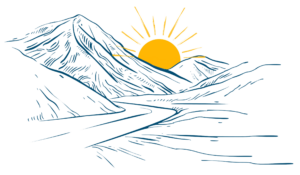A More Painful Path
“[A] mark of the liberating community is a radical commitment to a critical contemplation of one’s own life and the life of one’s faith community. This commitment is important for all groups and and especially important for communities like my own which have made small beginnings in aligning themselves with the oppressed, and are somewhere concretely involved in the struggle for justice. We can too easily become identified with goodness – feel that we are ‘the enlightened ones.’ We cease to ask questions about what we are doing, how we are doing it, and whether it might better be done another way. Not only must we question ourselves; we must create the kind of atmosphere that invites others to question us and to give us feedback on how they perceive and hear and experience us.
We all flower in the company of those who confirm and accept us, but sometimes the way to deeper relatedness and increased consciousness is along a more painful path.”
— Elizabeth O’Connor, 1976
The New Community: A portrait of life together in words and pictures

Today’s Invitation
Write about a time that you allowed yourself to be challenged, and a time that you resisted feedback.

Query of the Week
When conflict arises in your community, how do you respond?
If God is in every person, how does that inform your approach to conflict? When have you had a conflict that resulted in deeper trust and connection?




